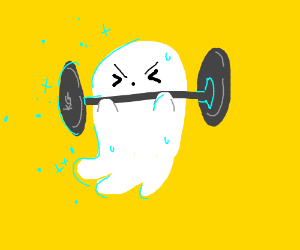I mainly want to get a coffee grinder because beans have a longer shelf life and are cheaper. If I also get better coffee, that’s a bonus! (Basically, I’m not looking for a premium option)
What is something I should pay attention to when buying a grinder. I see people mention “flat burr” grinders all the time. Is that something important?
A few years ago I bought a cheap terrible manual coffee grinder off Amazon. It took 5-10mins to grind my coffee. The grounds where too course and my hands hurt. Is the experience better with higher quality manual grinders? At the moment, I’m not a huge fan of manual grinders because of this experience and am leaning towards buying an electrical one.
What makes a coffee grinder better than others? What is the difference between premium and budget options?
Barazata Encore. It’s a bit expensive but lasts and works quite well.
I bought mine refurbished from Barazata about 5 years ago, and have never had a problem. I brew 1-2 times per day.
Unfortunately, it doesn’t look like they sell refurbished equipment anymore.
Googled the Baratza and found this hipster shop: https://captncoffee.com/collections/elektrische-kaffeemuehle
I’d rather go for the 1700€ Acaia Orbit and the 300€ Acaia Lunar scale, because they look aesthetically pleasing.
That’s what I get for browsing Lemmy before my first cup - you almost got me. The wave of self-righteous outrage I was about to unleash on you…
I’m still using a baratza maestro that I got at a thrift store 10 years ago
There are a few things to note: burr vs blade. You do not want a blade, because as others have said, the key to the grind is consistency of granules. Coffee ground too fine tends to over-extract, be bitter, and even clog equipment. Coffee ground too coarsely will under-extract, taste kinda earthy & “bleh”, and it’s a waste of bean.
The two best electric burr models on the budget side of things, AFAIK, is the the Capresso Infinity & the Baratza Encore.
The Capresso Infinity is the cheapest quality burr grinder you can get; it is gentle & slow grinding. Very consistent. Unit size is small, which is nice.
The Baratza Encore is SUCH a capable grinder. Very well known. It’s got a nice “heft” to it, so it stays put while grinding. I had a very oily bean that I sent through the Encore, so much that it choked & stopped up. I carefully cleaned it all out & it works just fine. What a champion!! Unlike the Capresso Infinity, it can crank out a more than acceptable espresso-level fine grind.
Between capability & reliability, the Baratza Encore wins my endorsement. If you don’t care about espresso & you just want a good machine without spending all the money, then & only then would I recommend Capresso Infinity.
I have had an Encore for a few years now, and it has handled everything from French press to espresso. I’ve been very happy with it, and instead of spending an upgrade there I was able to buy an espresso machine and get into that side of coffee.
Wow. I was only planning on educating myself and then hunting for a bargain on ebay and charity shops. But this reads like a truly genuine endorsement that I might just go for that. Not sure yet but I’m definitely considering!
I was using a hand grinder for years before i finally decided to plunk down the $ on a good electric grinder. Based on the reviews I’d read over the years the Encore really seems like the best grinder for the $, even though it’s relatively expensive. If you’re gonna use it daily, it’s a worthy investment. It’s fast, reliable, consistent, and it’s also built to be taken apart for cleaning/maintenance. It’s one of these situations where “buy once, cry once” could apply.
If looking for a bargain, you can always try to score one open box on eBay…
Did Baratza stop selling refurbs? I got mine as a refurb but don’t see a page for refurbished ones on their site.
Also they sometimes sell refurbished Encores on their site for a discount. But honestly new, they’re still very reasonable. My refurb looked brand new and has been serving me well for 2 years.
I was going to suggest refurb, too, but looking around their site there is no longer a page for refurbs. A little googling and it appears since Breville bought them in 2020 they’ve gone downhill some.
Oh that’s a bummer! I bought mine in 2022 and didn’t know that.
Depends on what you’re looking for. Do you want drip? Espresso? French press? Manual ? Electric? What’s your budget?
For cheap/low quality electric grinders, most of them are blade grinders: they chop up the beans in very rough sizes, take forever, sound like they’re gonna explode and make terrible coffee. Don’t bother, they’re shit.
Burr grinders come in 2 main “cutting technologies”, conical and flat. Conicals are mostly found on manual grinders, entry level electrics and some medium to high end ones. Flats are much more common on the medium to high end range because they tend to need much more torque and therefore powerful motors. As for the differences between the topologies, it mostly comes down to particle size distribution and the effects it has. Conicals tend to emphasize texture (think thick, syrupy espresso), flats tend to emphasize clarity (flavors tend to be more easily to discern). But they exist in a continuum and burr shape alone is definitely not the only factor.
As for actual recommendations, take a look at James Hoffman’s and Lance Hedrick’s channels on youtube, they have a lot of incredible advice on all kinds of grinders, among other coffee equipment. Be warned though, it’s a very deep rabbit hole :D
My main grinder is a DF64/G-Iota (~400€), and is an absolute workhorse. It’s a mid-range grinder that can be very easily modded to rival grinders more than twice its price, takes standard 64mm flat burrs and can be upgraded with super expensive SSP burrs. I love it. I think the current generation corrected many flaws I had to mod out of mine.
My travel grinder is a conical manual 1-ZPresso J-Max (~150€) that’s so quick it can grind at espresso range at almost 1g/s, with excellent results.
Thank you for explaining. This is exactly what I was struggling to understand with coffee grinders. They appear to do the same and massively vary in price but now it makes some sense.
Also, for the price, you gain a lot of fit and finish and sometimes features, convenience and/or workflow improvements. Good midrange products should focus exclusively on grind quality, even if it means lack of features or a rougher workflow.
I was looking for a grinder a while back and wanted a burr grinder but wasn’t looking to break the bank. I was recommended, and ultimately bought, a Timemore C2.
It’s been great! I tend to grind a couple weeks worth at a time and it’s not tiring to use at all. It washes up easy and you can adjust the grind based on application. I go more coarse in the summer when grinding for cold brew for my wife.
I’m not in the coffee scene much so I don’t know their reputation, as always ymmv.
I got the Timemore C2 on Ali Express it’s on par with the commandante but way cheaper.
Hoffmann has a few explanations and comparisons videos - like https://m.youtube.com/watch?v=bgjvLQu5NlE
What is your budget?
If you don’t have much money to spend then the Timemore C2 is often available for around $50. Around $100 there are the Kingrinder K0 and Timemore C3. Getting into the $150 are the Kingrinder K6 and some grinders from 1Zpresso.
If you have to have electric then don’t buy anything cheaper than a Baratza Encore.
Nice recommendations! I will keep that in mind. I dont want to mention a budget because this post isn’t supposed to be a “Pick a grinder for me post”. I’m just trying to understand what separates good grinders from bad grinders, so I can make an informed decision myself. The recommendations are still appreciated tho because it gives me a good idea of what brands are good.
Things are so much better now than they were 10 to 20 years ago. Now there are many good entry level hand grinders that are perfectly fine for the home brewer.
What makes a good grinder better than another are the same things for many tools or gear: Build quality and features.
Now there are quite a few well built inexpensive grinders. The differences are burr geometry but that is often a matter of personal preference and not a clear better or worse. The ability to easily adjust the grinder is nice. Ease of use. The amount of grinds they retain (more of an issue with electric grinders than hand grinders). Capacity: A lot of hand grinders don’t hold much more than 20 grams so brewing for more than one person is a lot of work.
If I were buying a pour over only electric grinder, I would probably buy a Fellow Ode 2.
Manual grinders aren’t bad, unless you go for the cheap ones. For example, my Comandante grinder has a steel conical burr, but most of the cheaper ones come with ceramic. The thing is, the thing’s sharp, I could actually cut myself if I wasn’t careful during cleaning, opposed to the ceramic burrs that are pretty blunt (from what I’ve heard, never had one). That makes grinding coffee a breeze (maybe 20-30secs for ~13grams for a cup of coffee), even on finer settings, also it introduces less dust, as it doesn’t crush the beans but cuts them into fine bits. There are many models of manual grinders that come with great burrs, some of are of the Chinese make if price is an issue (1zpresso for example).
Flat burrs are an electric grinder thing. The mechanics of grinding with those is a little different than with conical ones, but the result is pretty much the same. Electric grinders can come with both conical or flat burrs. I’ve got an absolute overkill of a grinder meant for commercial use, bought used for around $300. The thing is a beast, takes less than 5secs for ~20g of coffee. I wouldn’t suggest you get one (Mazzer Super Jolly FYI), just because of its size, but anything with that kind of build quality is likely gonna last you a literal lifetime. There are some more reasonably sized consumer electric grinders though, I heard Wilfa Svart is decent, some other might be fine as well.
Oh okay that probably explains my terrible experience with manual stuff. I think it was a cheap terrible ceramic one.
Are good manual grinders easy/fast enough to use daily? I’m pretty a zombie in the morning till I get my fix. if it’s too much effort, I don’t think I can see myself doing that every day (Especially just after waking up)
Chiming in to provide another anecdotal experience. At a drip grind size on my 1zpresso JX, I take no longer than half a minute to grind an 18g dose of beans and it requires nearly no effort at all. If you’re trying to keep the budget under or around $200USD, the brews you get from a nice manual grinder are significantly better than what you can get from an electric grinder at a similar price point, but you are trading convenience. If you’re entertaining or brewing for more than a few people regularly though, it might be worth the tradeoff. For me, the flexibility and portability of a manual grinder were definitely a priority, since it allowed me to take a very compact brew setup while traveling so that I wouldn’t be stuck with bad coffee while backpacking/in hotels.
Yes, they are. I pre-measure the amount in the evening and in the morning, while the kettle is getting hot, I grind it and put it into a Phin (vietnamese coffee filter, you’d be surprised how good it is) well before the water’s ready. While it takes its time to drip I cook up something quick to eat… and that’s been my morning for the last few years :D
Good manual grinders are definitely easy and fast enough for daily use, with the caveat that it’s going to depend on which type of coffee you are brewing. Pourovers/french press? Easily. Espresso? Probably a bit harder, and will require a better grinder.
You’ll hear a lot of people talk about baratza models. They are great at grinding and are fairly low cost.
You will have significant issues with static electricity and every time you use it you will make an enormous mess. I have had limited success with water spraying which is generally considered to minimize the impact. You’ll be sweeping the floor, using a wet cloth on your countertop, washing out the bin, and using a brush and cloth to clean out the machine. I have found the only way to clean out the chute where grinds exit is to use percussive maintenance, otherwise you have grinds just hanging out in the guts of the machine which are statically charged, just waiting for you to pick it up for next use.
After a while I decided I didn’t think a $150++ grinder that needed so much attention and care for regular use was worth it and instead order my beans pre-ground every 1.5-2 weeks from a local roaster at a minimal price premium. I figure let them deal with the mess while I get fresh coffee far more often. My prep time and cleanup is next to nothing thanks to this.
It’s all about convenience vs “perceived quality”. I don’t perceive the quality of freshly ground beans every day to be worth it vs avoiding all that mess, wasted table space and stuck with just one blend for weeks and weeks or very stale beans.
If you absolutely love the hour morning ritual of prepping and cleaning your coffee implements then i’m sure it’s quite therapeutic. I just have other priorities.
You’ll be sweeping the floor, using a wet cloth on your countertop, washing out the bin, and using a brush and cloth to clean out the machine.
Huh. As a counterpoint, I have a Baratza Encore and have encountered none of the cleaning issues outside of the machine that you mention.
Same. I have been spraying some water in the coffee beans before grinding, about 0.5-1g (two sprays from a water bottle) prior to grinding and have had no issues.
If you have build up in the chute, you can try tapping the grinder prior to removing the container.
Maybe it’s literally where the machine sits or whether one of you walks barefoot or something equally trivial. You guys could be doing the same things but one of you manages to discharge the static electricity while the other doesn’t.
I have a baratza, and I’ve never had to deal with static. To be honest, I’ve always been confused why there doesn’t seem to be any static at all
Adding the bellow to my machine keeps the grinder pretty clean on the inside. I only grind 11g and it all goes into the catch bin. Since I have to pickup and move my grinder after each use I have never seen grinds on the counter to clean up. I’m wondering more about how you are using the machine that it is causing such a mess. Also, it could be a faulty device, maybe the bin is not sitting correctly.
I weigh before and after grinding to make sure it all comes out.
I bought this a few years ago:
OXO Brew Conical Burr Coffee Grinder https://www.amazon.com/dp/B07CSKGLMM
Would not recommend. Within a year the oil from the beans would gum up the works on the grinder and we’d be getting inconsistencies in the grind, less output than expected and eventually nothing coming out.
Ended up buying this:
CUISINART Coffee Grinder, Electric Burr One-Touch Automatic Grinder with18-Position Grind Selector, Stainless Steel, DBM-8P1 https://a.co/d/2iznxaE
Pretty happy with it so far
Edit: I’d also add that they do make electric Burr grinders with scales. If I were to choose again, I’d get one. The advantage there is you set how much you want in grams, ounces, whatever… it grinds until it hits that amount. It beats what is the common thing… setting to some arbitrary number, usually “cups”, which just sets a timer for the grinder. Over time, a grinder will grind less and less as it needs to be cleaned so you end up with inconsistent amounts over time and you’ll be wondering why your Coffee is weaker than it used to be ;)
I’ve got the Cuisinart too. Love it.
The scale is important if you’re filling the hopper with all your beans. If you measure before filling the hopper then you can just let the machine go till it’s empty.
The grinding mechanism is important, because what you’re looking for is consistency: the grounds should optimally be the same granularity. Flat burr grinders ensure this. I have a less expensive KitchenAid burr grinder that works just fine; they don’t mave the model I have, anymore, but this seems like the current iteration.
Apart from the type of grinding mechanism, what is the difference between budget and premium grinders? Is it build quality or is there some other component which makes them better?
Eg. I found a cheap Melitta 1019-01 going for 15$ second hand. Im pretty sure it also has a flat burr grinder. I’m happy to pay the extra cost if I know where the money is going.
Yes, build quality. Ignoring the outer case, overall design appeal, etc. – the inner guts are either built well, or they’re not.
When you grind something between two pieces of metal, if the pieces of metal can wiggle or bend or move, you end up with inconsistent coffee grinds. Big boulders, tiny fines, and everything in between.
If the metal parts are rigid and uniformly spaced from the factory, then you enter the territory of nicely ground coffee. There are fewer outliers, and most of the grinds are of similar size.
This all translates into coffee that’s easier to brew because the water flows through it easier, and coffee that tastes better. The big boulders will be under extracted (sour), and the fine particles will be over extracted (bitter). The stuff in between will taste good, but the sour and bitter stuff might “ruin” it.
The Baratza Encore has been a go-to recommendation for years, and if you’re on a bit of a budget that’s what I would get. You absolutely get what you pay for with coffee grinders, so if you’re flush I would skip the Encore and get something 3x the price. “Buy once, cry once” as they say.
I am NOT a coffee specialist / snob, but with working from home we wanted to upgrade the old dripper and got that from Melitta, as well as the molino grinder. Both great deals at like under 50% price of new mind you.
We’re happy, the grinder works just fine for me, I don’t bother changing any settings since the first setup and I’m happy with any stuff I put through there, though I probably couldn’t tell you the difference.
I did see the difference going from pre-ground to freshly grinding in the morning, especially when we were ordering special beans from a local roaster we’d get them from the previous day roast and yeah I could tell the difference a bit. But if you’re just looking for something to grind you coffee and don’t care about the bells and whistles then a cheap burr one from Melitta has served us well!
One factor that I don’t think I’ve seen anyone mention is that better grinders will have better motors that can run slowly but still break beans down with high torque. The cheaper grinders have faster motors at a lower torque, so they rely on high speed impact to generate the force necessary. That translates to much louder, and much more broken bits of beans ( fines)
Well, as with anything, there are a lot of things that factor into price. Grinders are not special in that regard. You could pay more for brand name; for where it’s made (US, Germany, Japan vs China, Vietnam, Mexico); more options, like more granular controls or automation; better quality materials, like better, quieter, or longer-life motors and plates; design aesthetics; glass and metals vs plastics; whatever. Some of these could affect grind consistency, and many won’t. I honestly don’t know how you’d tell outside of reviews on coffee-related sites. In general, I’d say anything made in Japan is probably still a safe bet; although most quality grinder companies seem to be Italian, there are still fewer sketchy companies in Japan than anywhere else.
I’ve never heard of Melita, but I’m not exactly an expert. Companies have long known giving their company a name similar to a name that sounds live it comes from a country with a reputation for quality it a field will increase sales. Melita might sound Japanese, but be actually made in China, or you might hear an French-sounding name used by a cheap American wine maker. Just review the company, see where it’s made, see if you can find reviews.
Incidentally, tyere are excellent quality Chinese companies, but few that are alse cheap. This is true for any country; you get what you pay for. I have a machined aluminum, high-power laser made in China. It is very high quality; it was not inexpensive. So if your $15 grinder is refurbished, or lightly used, and it’s far more expensive new, then sure. Why not? It’s not much of a risk at that cost. But if that’s the cost new, then hard no. I’d not risk money on any grinder less than $70 new, and $100 if you can stretch that. There’s only so little quality materials cost. Like I said, refurbished is a different matter, and can bring the cost down.
I will add a caution about used grinders, though. The nature of grinders is such that it’s easy to use a grinder in such a way as to damage the grinding plates. You never want metal-on-metal grinding, for obvious reasons, and most burr grinders will let you set the grind so that the plates are touching. If the previous owner misused the grinder, you could get a damaged one and not be able to tell unless you take it apart and inspect at the plates. If the company did a refurbish, they probably checked it (you’d hope). Do not accept Amazon refurished; they test products function and superficially clean them, and little more. Fine for maybe a Wifi router, but I wouldn’t accept an Amazon-refurbished grinder.
deleted by creator
After my weeks of research and reading reviews, I determined that the Encore ESP is the best value due to the finer adjustments for dialing in the grind size for espresso. However, I am in the states and not sure how much this costs where you are.
I make espresso maybe twice a year, and really wanted a single grinder that does fine grinding for the few times I need it.
The standard encore should be fine as well, but I don’t have experience with it. Don’t forget your spritzer for wetting the beans before grinding. Also, the encore is not zero retention so you should figure out a way to get those last few grinds out, I picked up the bellow attachment for the hopper, but I think there are other solutions.
Good luck and remember, you’ll be with whatever grinder you choose for a while (unless it breaks) so imagine your future coffee usage as well.
Removed by mod
+1 vouch for 1zpresso jx-pro. It’s manual, but it’s lovely. Not so sure they still make that model, though. Looks to be gone on amazon and replaced with a model that has a folding handle. Kinda jealous of that feature, not gonna lie.
You want to get a burr grinder, they’re a lot better than blade grinders, but a bit more expensive. I started off with the Barazza Encore, it’s a bit loud compared to others and it retains a bit of ground coffee (a few good smacks in the top after you’ve turned it off loosens it up) but in general it’s a great entry level burr grinder. Be aware that it, or a lot of entry level burr grinders, don’t have enough power to grind down to espresso level. I had to replace my Encore with a DF64 in order to make espresso.
Not sure what your budget is, but I’ve been happy with this one.
I had one of these that lasted over 4 years before the motor or gears started rattling while it was grinding. It still worked, but was super noisy, and grinding beans isn’t that quiet to start with. I ordered another one and it’s had a few little improvements since I bought the first one, although nothing major. Equally happy with the new one.
I’m mainly using it for grinding beans for a french press. Your mileage may vary for other uses but, if I remember correctly, reviews for other uses seemed OK.







